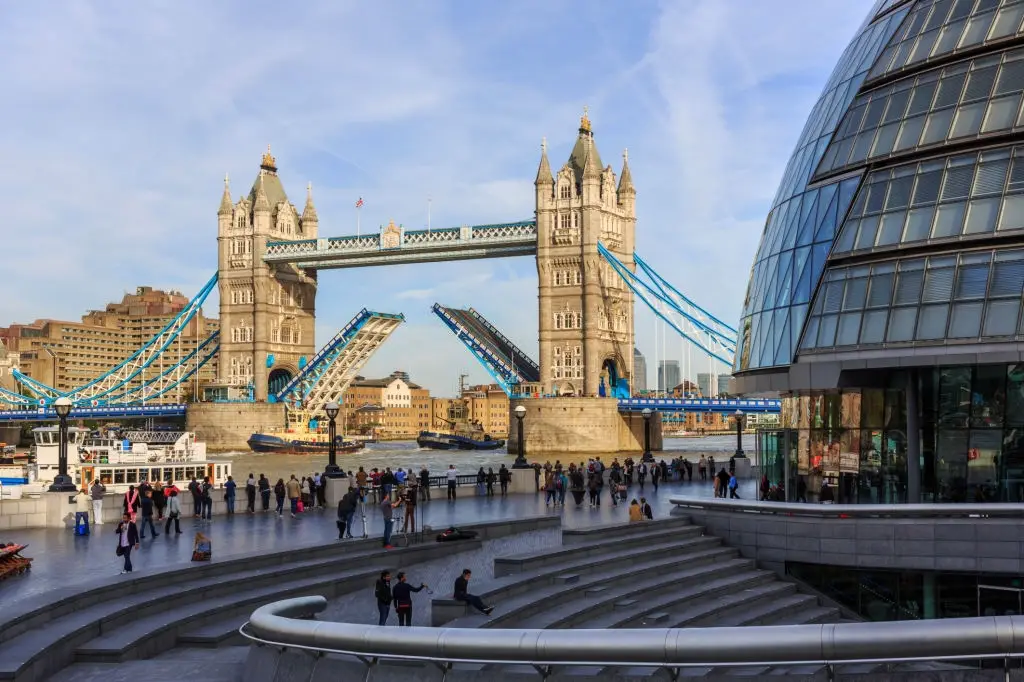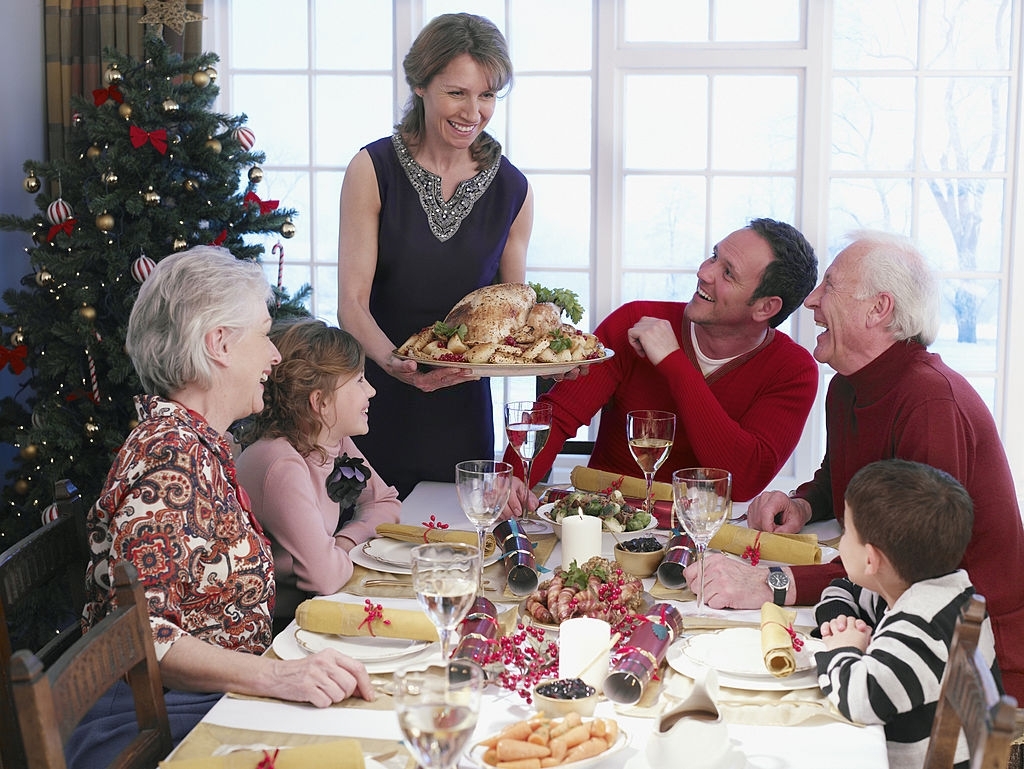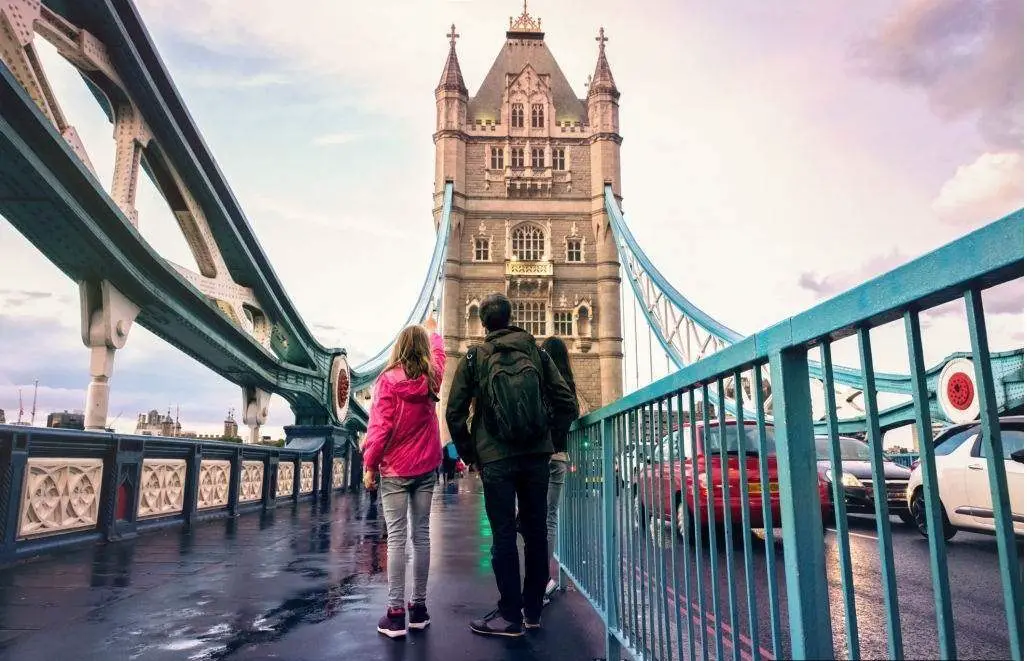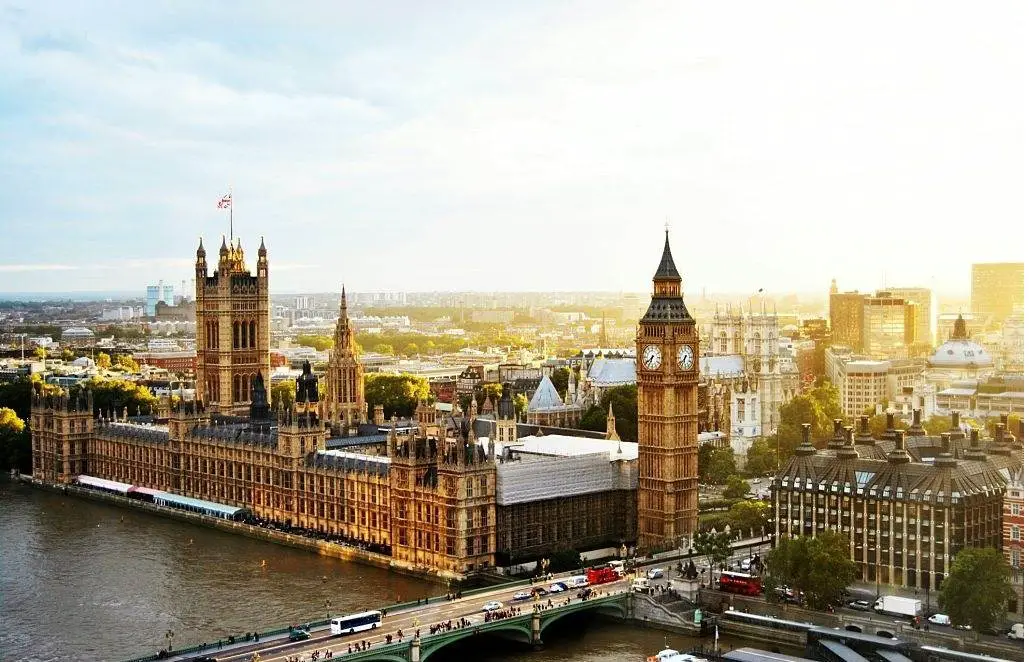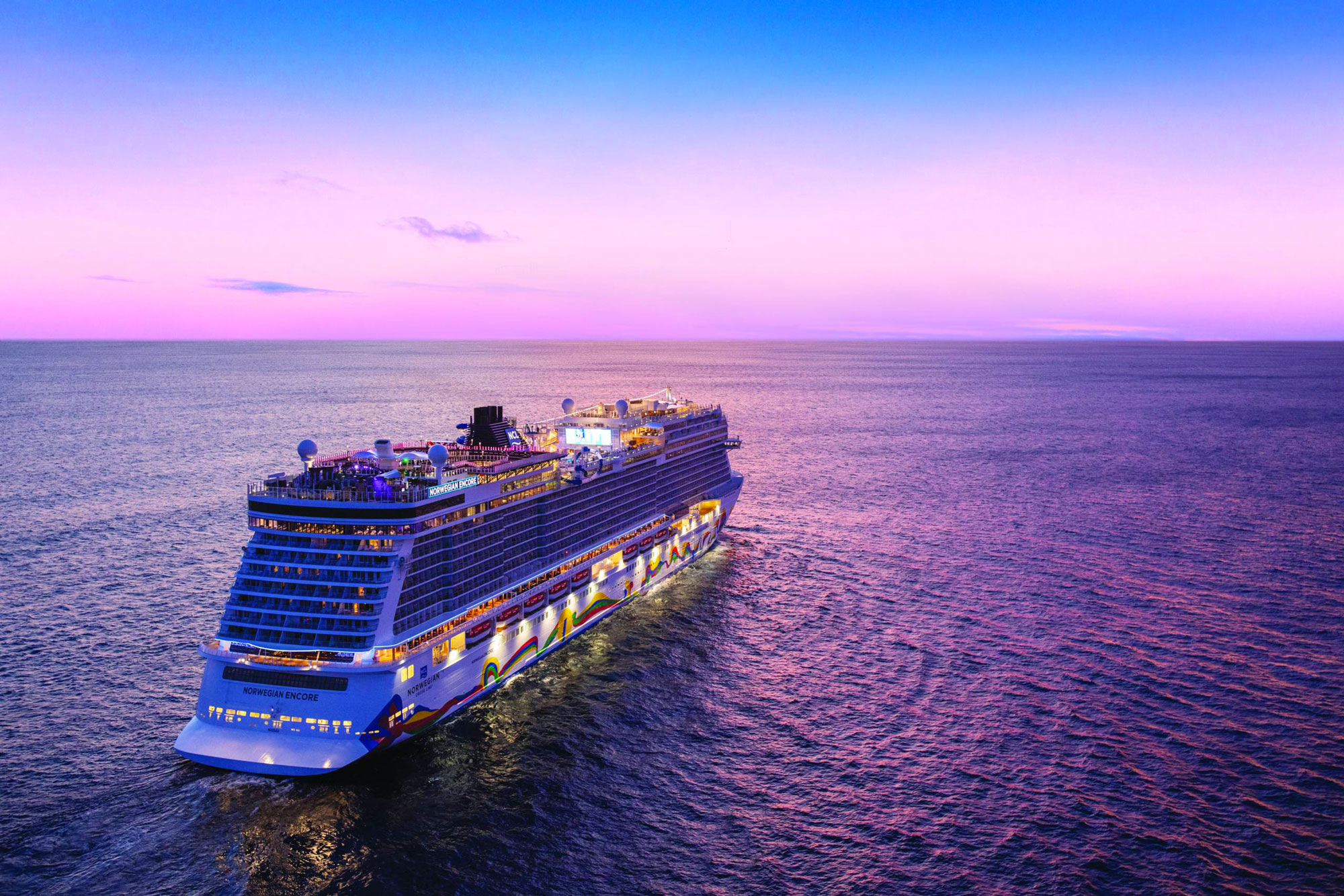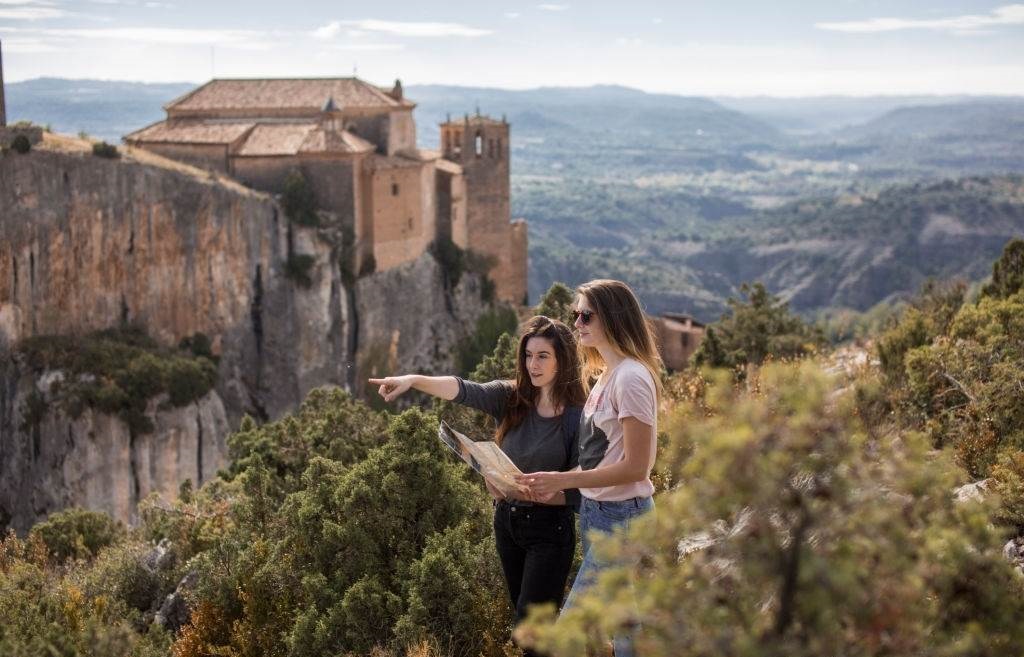Summary
- Europe, a continent steeped in rich cultural diversity, has many festivals that captivate the senses and celebrate the unique tapestry of traditions.
- Embark on a cultural odyssey with festivals like Venice Carnival (Italy) and Notting Hill Carnival (UK), where centuries-old traditions meet contemporary revelry.
- Europe boasts some of the world's most iconic music festivals. From the legendary Glastonbury (UK) to the eclectic Tomorrowland (Belgium), immerse yourself in the beats and melodies that echo across diverse genres, offering an unparalleled experience for music enthusiasts.
Famous Upcoming Festivals in Europe 2024
Embark on a journey into the heart of Europe's upcoming festivities, where the allure of cultural richness and diversity converges in a tapestry of celebrations. As we anticipate the grandeur of the year ahead, the significance of festivals in European traditions takes center stage, weaving a vibrant narrative of shared joy and communal revelry. Explore the mosaic of Famous Festivals in Europe, each an iconic expression of heritage, creativity, and community spirit.
In 2024, Europe is poised to host an array of renowned cultural, music, and seasonal events, making it a year to remember for festival enthusiasts. Join us as we delve into the Famous upcoming Festivals in Europe in 2024, where tradition meets modernity and the continent resonates with the beats of creativity. From the grandeur of well-established events to the charm of emerging celebrations, experience the kaleidoscope of European festivals in 2024, where every moment is a brushstroke on the canvas of cultural expression.
Whether it's the captivating allure of St. Patrick's Celebrations in Ireland or the melodic symphonies of Amsterdam Music Festival, these Europe Festivals in 2024 promise an unforgettable journey through the soul of the continent. Let the anticipation build as we explore the Famous upcoming Festivals in Europe in 2024, where each event becomes a chapter in the unfolding narrative of European cultural vibrancy.
Read this similar topic for Events in Europe 2024
Table for the Most Famous Upcoming Festivals in Europe by Months With Dates 2024
| Month | Festival | Location | Date | Theme |
|---|---|---|---|---|
| January | International Romani Festival | Sibiu, Romania | Romani Culture | |
| January | Festival International de Jazz de Montréal | Montreal, Canada | Jazz Music | |
| January | La Folie Douce | Chamonix, France | Winter Sports | |
| January | Acireale Festival | Italy | January-Feb | Cultural Celebrations |
| February | Berlinale | Berlin, Germany | Film | |
| February | Venice Carnival | Venice, Italy | Carnival | |
| February | Goulashfest | Budapest, Hungary | Goulash Food Festival | |
| February | Cadiz Festival | Spain | February | Cultural Celebrations |
| February | Bullfighting Festival | Spain | Feb-Oct | Bullfighting |
| March | Tomorrowland Winter | Alpe d'Huez, France | Electronic Music | |
| March | St. Patrick's Day | Dublin, Ireland | Irish Culture | |
| March | Carnival | Cologne, Germany | Carnival | |
| March | St. Patrick's Celebrations | Ireland | March | Irish Culture |
| April | International Tulip Festival | Istanbul, Turkey | Tulips | |
| April | Kingsday | Amsterdam, Netherlands | Dutch Monarchy | |
| April | La Tomatina | Buñol, Spain | Tomato Fight | |
| May | Cannes Film Festival | Cannes, France | Film | |
| May | Eurovision Song Contest | Turin, Italy | Music | |
| May | Chelsea Flower Show | London, England | Flowers | |
| June | UEFA Champions League Final | Istanbul, Turkey | Football | |
| June | Sziget Festival | Budapest, Hungary | Music | |
| June | Roskilde Festival | Roskilde, Denmark | Music | |
| June | Dunkirk Festival | France | June 2-5 | Historical Reenactment |
| June | Prague Transmission Festival | Czech Republic | June | Electronic Music |
| June | Traditional Folklore Fashion | Various Locations | June | Fashion |
| July | Montreux Jazz Festival | Montreux, Switzerland | Jazz Music | |
| July | Festival d'Avignon | Avignon, France | Theatre | |
| July | Heineken Open Air | Amsterdam, Netherlands | Music | |
| July | Basel Festival | Switzerland | July | Art |
| July | Stragusto Food Festival | Trapani, Italy | July | Food |
| August | Edinburgh Festival Fringe | Edinburgh, Scotland | Theatre | |
| August | Lollapalooza Berlin | Berlin, Germany | Music | |
| August | Oerol Festival | Terschelling, Netherlands | Theatre | |
| August | Tomato War Festival | Spain | August | Food |
| August | Copenhagen Cooking Festival | Denmark | August | Food |
| September | Piedmont Festival | Italy | September | Cultural Celebrations |
| September | Venice Biennale | Venice, Italy | Art | |
| September | Oktoberfest | Munich, Germany | Beer | |
| September | Reeperbahn Festival | Hamburg, Germany | Music | |
| September | Festival of Lights | Germany | Sep-Oct | Lights |
| September | Galway International Seafood Festival | Ireland | September | Food |
| September | Ludlow Food Festival | England | September | Food |
| September | Matstreif | Norway | Sep 29-Oct 2 | Food |
| October | London Film Festival | London, England | Film | |
| October | Tomorrowland | Boom, Belgium | Music | |
| October | Amsterdam Music Festival | Netherlands | October | Music |
| October | Chocolate Exhibition | France | Oct-Nov | Chocolate |
| October | Frieze Art Fair | England | October | Art |
| October | Stuttgarter Weindorf | Germany | October | Wine |
| November | Bonfire Night | United Kingdom | Fireworks | |
| November | Berlin Marathon | Berlin, Germany | Marathon | |
| December | Christmas Markets | throughout Europe | Christmas Markets | |
| December | New Year's Eve celebrations | throughout Europe | New Year Celebrations |
1-Festivals in Europe in January to February 2024: The Acireale Festival in Italy

The Acireale Festival, also known as Carnevale di Acireale, is one of Italy's most famous and historic Festivals. It takes place in Acireale, located on the eastern coast of Sicily, and is celebrated yearly in February.
The Carnevale di Acireale 2024, also known as the Carnival of Acireale 2024, is scheduled to transpire from Saturday, January 27, to Tuesday, February 13, 2024, in the enchanting town of Acireale.
The Festival is known for its elaborate floats and colorful costumes, often designed to reflect the region's rich history and culture. One of the festival's highlights is the procession of floats, which features intricately designed and decorated floats that are paraded through the streets of Acireale. These floats are often accompanied by dancers and performers in traditional Sicilian dress, adding to the festive atmosphere of the Festival.
The Acireale Festival also features a variety of street performers, musicians, and food vendors, offering visitors a taste of the region's unique cuisine and entertainment. Popular local dishes include "arancini" (stuffed rice balls) and "cannoli" (pastry tubes filled with sweetened ricotta cheese).
The Acireale Festival is a colorful and lively celebration that offers visitors a unique glimpse into the rich cultural heritage of Sicily. It is a must-see event for anyone interested in experiencing the unique traditions of southern Italy and enjoying some of the country's best food, music, and entertainment.
2-Festivals in Europe in February 2024: Cadiz Festival in Spain

The upcoming Carnival of Cádiz is slated to commence on Thursday, February 8, 2024, and will culminate on Sunday, February 18, 2024. Renowned for its 11-day duration leading up to Lent, the esteemed Carnival of Cadiz stands as one of Spain's preeminent and exceptional carnival celebrations.
The Festival is known for its lively music and colorful costumes, with participants dressing up in various themes, from political satire to traditional Andalusian dress. The Festival also features a variety of competitions, including singing competitions and costume contests.
One of the highlights of the Cadiz Festival is the street performances, where groups of musicians and performers known as "chirigotas" and "comparsas" perform in the streets, entertaining the crowds with their witty lyrics and catchy tunes.
The Festival is also known for its unique and delicious foods, including "tortilla de camarones" (shrimp omelet) and "pescaíto frito" (fried fish). These foods are often enjoyed with local wines and beers, adding to the festive atmosphere of the Festival.
The Cadiz Festival is a vibrant and colorful celebration showcasing Andalusia's rich cultural heritage. It is a must-see event for anyone interested in experiencing the unique traditions of Spain and enjoying some of the country's best music, food, and entertainment.
3-Festivals in Europe in 2024 from February to October: Bullfighting Festival in Spain

Bullfighting, also known as tauromachia, is a traditional spectacle in Spain that has been a part of the country's culture for centuries.
Bullfighting festivals are held annually in many Spanish cities and towns, attracting locals and tourists alike.
Festival Dates start from February to October across all Spain cities.
The most famous bullfighting festival in Spain is the Feria de Abril in Seville, which takes place in April and lasts for a week. The festival features daily bullfights, live music, dancing, and other cultural events. The event is a significant social occasion, with locals dressed in traditional clothing and gathering to enjoy the festivities.
Another well-known bullfighting festival in Spain is the San Fermin Festival in Pamplona, which is held in July. The festival is famous for the "Running of the Bulls," where brave participants run through the streets of Pamplona alongside six bulls. The festival also features bullfighting, music, and other cultural events.
However, bullfighting is a controversial activity that has drawn criticism from animal rights activists. The practice involves inflicting harm on the bull, which many people find cruel.
While some Spaniards view bullfighting as an essential part of their cultural heritage, there is a growing movement to ban the practice. Several Spanish cities have already prohibited bullfighting, and the debate over the future of the tradition continues.
Bullfighting festivals in Spain are a part of the country's rich cultural heritage and offer visitors a unique experience of Spanish culture. However, it is essential to consider the ethical implications of the practice and engage in respectful dialogue on the topic.
4-Festivals in Europe in March 2024: St. Patrick's Celebrations in Ireland

St. Patrick's Day is celebrated annually on March 17th in Ireland, one of the country's most significant cultural events. The day is named after Saint Patrick, the patron saint of Ireland, who is credited with spreading Christianity throughout the country.
Festival Dates: 17 March 2024
St. Patrick's Day is a national holiday in Ireland, and it is celebrated with parades, festivals, and other events across the country. The festivities are marked with traditional Irish music, dance, and food, and people dress up in green clothing and accessories to show their Irish pride.
The largest St. Patrick's Day parade in Ireland takes place in Dublin, where hundreds of thousands of people gather to watch the procession of floats, performers, and marching bands. Other cities and towns across Ireland also hold parades and festivals, each with unique character and charm.
In addition to the parades, many pubs and restaurants offer traditional Irish food and drinks, including corned beef and cabbage, Irish stew, and Guinness, Ireland's famous dark beer.
St. Patrick's Day celebrations in Ireland are a vibrant and joyful expression of Irish culture and pride. It is an excellent opportunity for visitors to experience the warmth and hospitality of the Irish people and immerse themselves in the country's rich cultural heritage.
5-Festivals in Europe in April 2024: International Tulip Festival - Istanbul, Turkey
Istanbul boasts numerous exquisite parks, many of which adorn themselves with vibrant tulips during the festival season. Emirgan Park stands out as a primary venue, where we delighted in the splendor of the Istanbul Tulip Festival 2022. Here, thousands of tulips are meticulously arranged in breathtaking patterns, creating a mesmerizing sight. The festival at Emirgan Park also offers a delightful array of traditional arts workshops and live musical performances, adding to the festive ambiance.
For those seeking alternative experiences, Gülhane Park, Sultanahmet Square, and Göztepe Park, situated on the Asian side, beckon exploration. Our excursion to Göztepe Park during the Tulip Festival Istanbul 2023 proved particularly enchanting, providing a serene retreat amidst the stunning tulip displays, away from the bustling crowds.
The official dates of the Tulip Festival Istanbul typically span from April 1st to April 30th each year, although the blooming season may vary slightly depending on prevailing weather conditions. For comprehensive insights into the festival and recommendations on the finest parks to visit, we invite you to peruse our detailed guide.
Festival Dates: from 1st - 30th April each year
Festival Location: Istanbul, Turkey
6-Festivals in Europe in May 2024: Cannes Film Festival - Cannes, France
The Cannes Film Festival, held annually in Cannes, France, is one of the most prestigious events in the international film industry. Established in 1946, the festival attracts filmmakers, actors, producers, and film enthusiasts from around the globe. It typically takes place in May and lasts for about two weeks.
The Cannes Film Festival serves as a platform for showcasing a diverse array of films, including feature films, documentaries, and short films, from various genres and countries. The festival is renowned for premiering highly anticipated movies and for recognizing outstanding cinematic achievements through its prestigious awards, including the Palme d'Or, which is the highest prize awarded to the best film in the competition.
Apart from film screenings and awards ceremonies, the Cannes Film Festival also hosts press conferences, panel discussions, and networking events, providing opportunities for industry professionals to interact, collaborate, and discuss trends and challenges in filmmaking.
In addition to its professional aspect, the Cannes Film Festival has become synonymous with glamour and celebrity culture. The red carpet events at Cannes attract attention from media outlets worldwide, with celebrities and filmmakers showcasing their latest fashion and making headlines with their appearances.
The Cannes Film Festival is not only a celebration of cinema but also a platform for cultural exchange, artistic innovation, and the promotion of global film industry trends. It continues to play a significant role in shaping the landscape of contemporary cinema and remains an essential event for filmmakers and cinephiles alike.
Festival Dates: Tue, May 14, 2024 – Sat, May 25, 2024
Festival Location: Cannes, France
7-Festivals in Europe in June 2024: Dunkirk Festival in France 2-5 June 2024

The Dunkirk Festival, also known as the Carnaval de Dunkerque, is one of France's most unique and festive events. This Festival has a rich history that dates back to the 17th century and is celebrated each year in the city of Dunkirk, located in the northern region of France.
The Festival takes place over several weekends between January and March, with the highlight being the "La Bande" procession on the Sunday before Ash Wednesday. This is when thousands of costumed revelers take to the streets, singing and dancing to traditional Festival songs and throwing herrings at the crowd, a nod to the city's fishing heritage.
One of the most fascinating aspects of the Dunkirk Festival is the "jet du hareng" or "herring throw". During the procession, participants throw smoked herrings into the crowd, which is considered good luck for catching fish in the upcoming fishing season.
The Festival is also known for its unique costumes, which feature traditional fishermen's garb and hats with pom-poms. Both men and women wear these costumes, and many participants also paint their faces with black and white stripes, symbolizing the city's flag.
The Dunkirk Festival is a lively and colorful celebration that draws visitors from all over France and beyond. It is a testament to the region's rich history and cultural heritage and is a must-see event for anyone interested in experiencing the unique traditions of northern France.
8-Festivals in Europe in June 2024: International Romani Festival - Sibiu, Romania
The World Roma Festival, also known as Khamoro, is an esteemed international Romani event conducted annually in Prague, Czech Republic. Recognized as one of the most prestigious Roma initiatives globally, it features acclaimed international Romani musicians. Spanning five days, the festival takes place in May across Prague's streets and various clubs within the city. The festival comprises three distinct sections: the Expert Section, hosting seminars; the Culture Section, featuring music, dance performances, and parades; and the Media Section, disseminating pre-festival information.
Dates: May 26th to June 1st, 2024.
Location: takes place in Prague, Czech Republic.
9-Festivals in Europe in June 2024: Prague Transmission Festival in Czech Republic

Prague Transmission Festival is the Czech Republic's annual electronic dance music festival. The festival has been running since 2006 and attracts thousands of visitors from Europe and beyond.
The festival showcases some of the biggest names in electronic dance music, with a lineup of international DJs and producers. The event features a variety of sub-genres, including trance, techno, and house music, offering something for everyone.
Festival Dates: Saturday, June 15, 2024
One of the highlights of the Prague Transmission Festival is the elaborate production, featuring impressive light shows, pyrotechnics, and visual effects. The festival also boasts state-of-the-art sound systems, creating a truly immersive experience for attendees.
Prague Transmission Festival is more than just a music event; it celebrates electronic dance music culture. The festival features art installations, food stalls, merchandise stands, and various interactive experiences, including workshops and talks.
The festival is held in the iconic O2 arena in Prague, which provides a perfect setting for the event. The city of Prague itself also adds to the festival's charm, with its beautiful architecture and vibrant nightlife scene.
Prague Transmission Festival is a must-visit event for any electronic dance music enthusiast. It offers a unique opportunity to experience some of the biggest names in the industry in a truly immersive and unforgettable setting.
10-Festivals in Europe in June 2024: Traditional Folklore Fashion (Various Locations)

The European Festival of Traditional Folklore Fashion celebrates the rich cultural heritage of European countries through traditional clothing. The festival features performances by groups representing different regions and countries, showcasing the unique designs and styles of their traditional dresses.
The festival is held annually in different European cities, allowing visitors to experience the diversity of traditional clothing from different regions. The event brings together groups of performers who specialize in preserving traditional dress and showcasing their history and significance.
The festival celebrates traditional clothing and serves as a cultural exchange and dialogue platform. Visitors can learn about the history and significance of traditional dress styles and their associated customs and beliefs.
In addition to the performances, the festival also features exhibitions and workshops, allowing visitors to learn about traditional dressmaking techniques and the materials used to make the clothing.
The European Festival of Traditional Folklore Fashion is an excellent opportunity to celebrate and learn about Europe's cultural heritage through traditional clothing. It is a must-visit event for anyone interested in learning about the diversity and beauty of traditional European clothing styles from different regions and countries.
11-Festivals in Europe in July 2024: Basel Festival in Switzerland

The Basel Festival, also known as Fasnacht, is one of Switzerland's oldest and most unique Festivals. It takes place in the city of Basel, located in the northwest of Switzerland, and is celebrated yearly in July.
The Festival is characterized by its colorful costumes and masks, often designed to look grotesque or humorous. These costumes and masks are worn by participants known as "Waggis", who roam the streets of Basel playing musical instruments and throwing confetti.
Festival Dates: 14-24 July 2024
One of the highlights of the Basel Festival is the "Morgestraich" procession, which takes place in the early morning hours of the first day of the festival. During this procession, the lights in the city are turned off, and participants carrying lanterns and playing piccolos and drums march through the streets in total darkness. This creates a unique and surreal atmosphere, unlike any other Festival.
The Basel Festival is also known for its traditional foods, including "Fastenwähe" (a type of pastry) and "Zwiebelwähe" (onion pie). These foods are often enjoyed with local wines and beers, adding to the festive atmosphere of the Festival.
The Basel Festival is a vibrant and colorful celebration showcasing Switzerland's unique cultural heritage. It is a must-see event for anyone interested in experiencing the rich traditions of this beautiful country.
12-Festivals in Europe in July 2024: Stragusto Food Festival in Trapani, Italy

The Stragusto Festival is an annual food and wine festival in Trapani, located on the western coast of Sicily, Italy. The festival celebrates Sicilian cuisine, showcasing the best of the region's food and drink.
Festival Dates: 26 - 30 July 2024
The festival features various events, including food tastings, cooking demonstrations, talks, and workshops. Visitors can sample dishes from some of the city's top restaurants, as well as from street food vendors and food trucks. The festival also features a wine market where visitors can sample and purchase some of the region's finest wines.
In addition to the food and wine offerings, the Stragusto Festival also features a variety of events and activities focused on culture and entertainment. There are musical performances, dance performances, and other cultural events that celebrate the region's rich heritage.
One of the festival's highlights is the Festa del Mare (Sea Festival), which takes place on the festival's final day. The festival celebrates the importance of seafood in Sicilian cuisine and features a wide range of dishes made with fresh fish and seafood.
The Stragusto Festival is a unique and exciting celebration of Sicilian cuisine and culture. It allows visitors to experience the region's rich culinary heritage while enjoying various cultural events and entertainment.
13-Festivals in Europe in August 2024: Tomato War Festival in Spain

The Tomato War Festival, or La Tomatina, is an annual event in Buñol, near Valencia, Spain. The festival is celebrated on the last Wednesday of August and involves thousands of people throwing tomatoes at each other in a friendly battle.
The origins of the Tomato War Festival are unclear, but it is believed to have started in the mid-20th century. The festival has become popular, attracting tourists worldwide to experience the unique tradition.
Festival Dates: 28/08/2024
On the festival day, a large truck carrying tons of ripe tomatoes enters the town's central square, and the battle begins. Participants throw tomatoes at each other, covering themselves in the juicy fruit and creating a sea of red.
Despite the seemingly chaotic nature of the festival, there are strict rules in place to ensure the safety of participants, including the requirement to squish the tomatoes before throwing them and the prohibition of any objects other than tomatoes.
The Tomato War Festival celebrates life and community, bringing people together to have fun and enjoy the moment. It is a unique and fun-filled experience that offers a break from everyday life and provides an opportunity to create lasting memories.
The Tomato War Festival is a fun and exciting way to experience Spanish culture and tradition. It is a must-visit event for anyone looking to participate in a unique and lively festival that will be unforgettable.
14-Festivals in Europe in August 2024: Copenhagen Cooking Festival in Denmark

The Copenhagen Cooking Festival is an annual event in Copenhagen, Denmark's capital city. The festival celebrates Nordic cuisine, showcasing the best of the region's food and drink.
Festival Dates: 16th - 25th OF AUGUST 2024.
The festival features various events, including food tastings, cooking demonstrations, talks, and workshops. Visitors can sample dishes from some of the city's top restaurants, as well as from street food vendors and food trucks.
In addition to the food offerings, the Copenhagen Cooking Festival also features various events and activities focused on sustainability and responsible food production. The festival's organizers work with local farmers and producers to ensure that the ingredients used in the dishes are sourced responsibly and sustainably.
One of the festival's highlights is the New Nordic Food Symposium, a gathering of chefs, food writers, and researchers from around the world who come together to discuss the latest trends and ideas in Nordic cuisine.
The Copenhagen Cooking Festival is a unique and exciting celebration of Nordic cuisine. It provides an opportunity for visitors to experience the rich culinary heritage of the region while also promoting sustainable food practices and supporting local businesses.
15-Festivals in Europe in September 2024: The Piedmont Festival, or Carnevale di Torino in Italy

The Piedmont Festival, or Carnevale di Torino, is one of Italy's most famous and colorful festivals. It takes place in Turin, located in the northern region of Piedmont, and is celebrated each year in September.
Festival Dates: 1-10 September 2024
The Festival features a variety of events, including parades, music performances, and street theater. One of the highlights of the Festival is the procession of floats, which features giant, whimsical floats designed and built by local artisans. These floats are often adorned with colorful lights and are accompanied by dancers and performers in costumes.
The Festival also features a unique tradition known as the Battle of Oranges. This is a historical reenactment in Turin's streets, where participants dressed as medieval knights and peasants engage in a mock battle using oranges as weapons. The origins of this tradition are not entirely clear. Still, it is believed to have started to commemorate a historical event in which the people of Turin revolted against a tyrannical ruler.
The Piedmont Festival is lively and exciting, attracting visitors from all over Italy and beyond. It is a testament to the region's rich cultural heritage and is a must-see event for anyone interested in experiencing the unique traditions of northern Italy.
16-Festivals in Europe from September to October 2024: Festival of Lights in Germany

The Festival of Lights is an annual event held in Berlin, Germany, during October. It celebrates art, culture, and history, where the city's most iconic buildings and landmarks are illuminated with colorful lights and projections.
The Festival of Lights Berlin, an annual international event, unfolds as a complimentary spectacle in Berlin, Germany, from September to October. This transformative celebration envelops the city in a radiant ambiance, employing illuminations, luministic projections, and 3D mapping to embellish landmarks and buildings, creating a captivating visual experience.
During the Festival of Lights, visitors can explore the city and witness the spectacular light displays on buildings such as the Brandenburg Gate, the Berlin Cathedral, and the Berlin TV Tower. The event also features light shows, concerts, and art exhibitions, making it a truly immersive experience.
One of the unique aspects of the Festival of Lights is that it brings attention to the city's history and culture. Many of the light projections feature images and themes that highlight Berlin's past, including the fall of the Berlin Wall and the city's role as a center of art and creativity.
The Festival of Lights has become one of the most popular events in Berlin, attracting locals and tourists alike. It is a unique opportunity to explore the city at night and experience it in a new way. The festival's unity and creativity message has also helped establish Berlin as a global center for art and culture.
The Festival of Lights is a stunning visual spectacle that celebrates the beauty and history of Berlin. It is a must-see event for anyone visiting the city in October and provides a unique glimpse into the rich cultural heritage of Germany.
17-Festivals in Europe in September 2024: Galway International Seafood Festival in Ireland

The Galway International Seafood Festival is an annual event in Galway, Ireland. The festival celebrates seafood and Irish culinary traditions and attracts thousands of visitors worldwide.
Festival Dates: Sept 27th to 29th, 2024.
The festival features a variety of events, including cooking demonstrations, food tastings, and live music performances. Some of the festival's highlights include the oyster-opening championships, where contestants race to open oysters as quickly as possible, and the seafood trail, where visitors can sample seafood dishes from local restaurants and food trucks.
The Galway International Seafood Festival includes family-friendly activities, such as children's workshops and face painting. There are also opportunities to learn about the history and culture of Galway through guided walking tours and talks.
In addition to food and entertainment, the festival promotes sustainable fishing practices and highlights the importance of preserving the ocean's ecosystem. This commitment to sustainability is reflected in the festival's use of compostable plates and cutlery and its emphasis on locally sourced and seasonal ingredients.
The Galway International Seafood Festival is a unique and exciting celebration of Irish seafood and culinary traditions. It allows visitors to experience Galway's vibrant culture while promoting sustainable practices and supporting local businesses.
18-Festivals in Europe in September 2024: Ludlow Food Festival in England

Ludlow Shropshire, England. The festival celebrates local and regional food and drink, showcasing the area's best.
The festival features over 180 exhibitors, from artisan cheese makers to craft brewers and independent distilleries. Visitors can sample and purchase various products, from handmade chocolates to locally produced cider and ale.
Festival Dates: 13th, 14th & 15. th. September 2024.
In addition to the food and drink offerings, the festival also features a variety of events and activities, including cooking demonstrations, talks, and tastings. Some of the festival's highlights include the Sausage Trail, where visitors can taste and vote for their favorite local sausage, and the Ludlow Gin Palace, showcasing the area's finest gins.
The Ludlow Food Festival also promotes sustainable food production and farming practices. The festival's organizers work with local farmers and producers to ensure that the ingredients used in the products are sourced responsibly and sustainably.
The Ludlow Food Festival is a unique and exciting celebration of local and regional food and drink. Visitors can experience the area's rich culinary heritage while supporting local businesses and promoting sustainable practices.
19-Festivals in Europe 2024: September 29-October 2: Matstreif in Norway

Matstreif is an annual food festival held in Oslo, Norway. The festival celebrates Norwegian cuisine, showcasing local and regional food producers.
The festival features over 200 exhibitors, including local farmers, fishermen, and artisanal food producers. Visitors can sample and purchase various products, including cheeses, cured meats, baked goods, seafood, and craft beers.
In addition to the food offerings, Matstreif also features a range of culinary demonstrations and workshops. Visitors can attend cooking classes, and demonstrations led by some of Norway's top chefs and learn about traditional Norwegian cooking methods and ingredients.
One of the festival's highlights is the Street Food Market, where visitors can sample various street food dishes made with local and regional ingredients. The festival also features a Craft Beer Market, where visitors can sample some of the best craft beers nationwide.
Matstreif is a unique and exciting celebration of Norwegian cuisine and culture. It allows visitors to experience the country's rich culinary heritage while supporting local food producers and businesses.
20-Festivals in Europe in October 2024: Amsterdam Music Festival in the Netherlands

The Amsterdam Music Festival, or AMF, is one of the world's largest and most popular electronic dance music festivals. It takes place each year in Amsterdam, the Netherlands, and features some of the biggest names in the EDM industry.
Festival Dates: 19-October 2024
The festival is known for its impressive lineup of DJs and live performances, with past performers including Martin Garrix, Armin van Buuren, David Guetta, and Tiësto. The festival also features stunning visual effects and pyrotechnics, adding to the electrifying atmosphere.
In addition to the main stage performances, AMF also offers a variety of other events and activities, including a conference for music industry professionals, a pre-party at the Ziggo Dome arena, and a boat party along the canals of Amsterdam.
The Amsterdam Music Festival attracts worldwide music fans, making it an international event. The festival has also become a popular destination for electronic dance music fans, with many visitors extending their stay in Amsterdam to explore the city's vibrant nightlife and cultural attractions.
The Amsterdam Music Festival is an unforgettable experience for fans of electronic dance music, offering a high-energy and immersive celebration of the best EDM has to offer.
21-Festivals in Europe in October to November 2024: Chocolate Exhibition in France

The Chocolate Exhibition, or Salon du Chocolat, is an annual event in Paris, France, showcasing the world's best chocolate and pastry makers. The event takes place each fall and draws chocolate lovers worldwide.
The Salon du Chocolat will take place on 5 days from Wednesday, 30. October to Sunday, 03. November 2024 in Paris.
The exhibition features various chocolate products, from truffles and pralines to chocolate bars and pastries. Visitors can sample chocolates from over 200 exhibitors, learn about the chocolate-making process, and attend workshops and cooking demonstrations led by renowned pastry chefs.
One of the highlights of the Chocolate Exhibition is the fashion show, where models showcase extravagant dresses made entirely out of chocolate. The event also features live music performances, art exhibitions, and a dedicated area for children with interactive activities and games.
The Chocolate Exhibition in Paris allows chocolate makers worldwide to showcase their unique flavors and techniques. Visitors can sample chocolates from countries such as Switzerland, Belgium, and Italy, as well as lesser-known chocolate-producing regions like Madagascar and Venezuela.
The Chocolate Exhibition in Paris is a must-see event for any chocolate lover. It offers a unique opportunity to experience the best chocolate and pastries worldwide and learn about chocolate-making's rich history and culture.
22-Festivals in Europe in October 2024: Frieze Art Fair in England

The Frieze Art Fair is an annual contemporary art fair held in London, UK, and is considered one of the most prestigious art events in the world. The fair occurs each October in Regent's Park and attracts art enthusiasts, collectors, and dealers worldwide.
The Frieze Art Fair showcases contemporary art worldwide, featuring works by emerging and established artists. The fair presents a range of media, including painting, sculpture, video, and performance art, providing visitors with a diverse range of experiences.
Festival Dates: from 20 September–29 October, 2023.
In addition to the leading fair, Frieze London includes several other sections, such as Frieze Masters, which features art from the ancient era to the late 20th century, and Frieze Sculpture, an outdoor sculpture park in Regent's Park.
The Frieze Art Fair has become a significant event in the art world, with many galleries and artists using the fair to showcase new works and establish connections. The fair also provides a platform for emerging artists, offering them a chance to exhibit alongside established names.
The Frieze Art Fair is a unique opportunity to explore contemporary art from around the world and to experience the latest trends and developments in the art world. The fair's reputation as a leading contemporary art event has helped to establish London as a global center for contemporary art.
23-Festivals in Europe in October 2024: Stuttgarter Weindorf in Germany

Stuttgarter Weindorf, also known as the Stuttgart Wine Village, is an annual festival in Stuttgart, Germany. The festival celebrates the region's wine culture, showcasing local wines and culinary specialties.
The festival occurs in the city center, where visitors can stroll along the streets lined with traditional wooden stalls and wine tents. The tents are decorated with flowers, grape vines, and other traditional elements, creating a festive and inviting atmosphere.
Visitors can sample a wide range of local wines, from white and red to sparkling and rosé. Along with the wine, the festival also offers a variety of traditional German dishes, such as sausages, pretzels, and roasted pork, as well as regional specialties like Swabian noodles and Maultaschen (German dumplings).
There is also live music and entertainment throughout the festival, with performers playing traditional German folk music and modern pop songs. Visitors can dance and sing along while enjoying their wine and food.
Stuttgarter Weindorf is a beloved festival in Stuttgart and draws visitors from across Germany and beyond. It provides a unique and authentic experience of the region's wine and culinary culture and is a great way to celebrate the summer season in Germany.
24-Festivals in Europe in November 2024: Bonfire Night - United Kingdom
Bonfire Night, also known as Guy Fawkes Night or Fireworks Night, is a traditional British event observed annually on November 5th. The occasion commemorates the foiling of the Gunpowder Plot of 1605, an attempt by Catholic conspirators, including Guy Fawkes, to blow up the Houses of Parliament in London and assassinate King James I of England.
The celebration typically involves the lighting of bonfires and the setting off of fireworks across the United Kingdom. Effigies of Guy Fawkes, known as "Guys," are often created and burned on the bonfires, symbolizing the failure of the Gunpowder Plot.
Bonfire Night is a festive occasion that brings communities together for outdoor gatherings, where people enjoy fireworks displays, bonfire parties, and traditional foods such as toffee apples, bonfire toffee, and parkin cake.
While Bonfire Night has historical significance, it has evolved into a cultural event that is celebrated with enthusiasm throughout the UK. It is a time for families and friends to come together, enjoy the spectacle of fireworks, and reflect on the nation's history and traditions. However, it's also important to note that safety precautions are emphasized during Bonfire Night to prevent accidents and injuries associated with fireworks and bonfires.
Festival Dates: Tue, Nov 5, 2024
Festival Location: In various regions across Great Britain, as well as in select non-Catholic communities in Northern Ireland and other parts of the Commonwealth, festivities take place. Many locations in the UK incorporate funfairs, family-oriented entertainment, and unique culinary offerings as part of their celebrations.
25-Festivals in Europe in December 2024: Christmas Markets
The Nuremberg Christkindlesmarkt is one of Germany's most famous and traditional Christmas markets, held annually in Nuremberg, Bavaria. Dating back to the mid-16th century, the market has a rich history and is deeply rooted in German Christmas traditions.
The Nuremberg Christkindlesmarkt typically opens in late November and runs until Christmas Eve, attracting visitors from all over the world. The market is known for its charming ambiance, with hundreds of wooden stalls adorned with twinkling lights and festive decorations.
One of the highlights of the Nuremberg Christkindlesmarkt is the opening ceremony, during which the Christkind, a traditional Christmas gift-bringer in German-speaking countries, officially opens the market. Dressed in golden robes and a crown, the Christkind delivers a prologue from the balcony of the Frauenkirche (Church of Our Lady), marking the start of the holiday season.
Visitors to the Nuremberg Christkindlesmarkt can explore a wide range of stalls selling traditional handicrafts, Christmas ornaments, toys, and seasonal treats. Nuremberg is particularly famous for its Lebkuchen (gingerbread), which comes in various shapes and flavors, and its Nürnberger Rostbratwurst (Nuremberg sausages), a beloved local delicacy.
In addition to shopping, visitors can enjoy live music performances, nativity scenes, and festive activities for children. The market's nostalgic atmosphere and emphasis on tradition make it a beloved destination for families, couples, and holiday enthusiasts alike.
The Nuremberg Christkindlesmarkt offers a magical experience that captures the essence of German Christmas spirit, making it a cherished part of the holiday season for locals and tourists alike.
Festival Dates: December 24, 2024
Festival Location: Nuremberg Christkindlesmarkt, Germany
Other Festivals in Europe in December 2024
- Vienna Christmas Market, Austria December 23, 2024
- Budapest Christmas Market, Hungary December 31, 2024
- Amsterdam Light Festival, Netherlands December 7, 2023
- Strasbourg Christmas Market, France December 31, 2024


